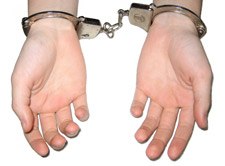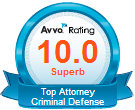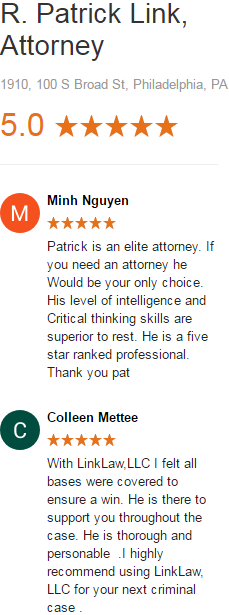Juvenile crime cases can be extremely difficult for a family to deal with. Suddenly, parents are confronted with the very real possibility that the criminal justice system will infringe on their autonomy in the upbringing of the child.
The courts and or DHS may become a constant and invasive presence within their home. Worst of all is the ability of those entities to take the child out of the home and place him or her in a juvenile placement facility.
Furthermore, being found guilty of many juvenile offenses can have a lifelong impact when it comes to getting a job or student loans as an adult. When these possibilities exist, it is important to retain a top Philadelphia criminal defense attorney to fight the criminal charges brought against the child.
R. Patrick Link has extensive experience assisting minors and their families struggling through the juvenile justice system Contact Linklaw by email or speak with me on the phone 267-858-4774 and I will handle your case personally from start to finish.
What many people don’t realize is that juveniles have the same rights as adults when it comes to the burden of proof required to convict as well as to be free from unreasonable searches and seizures by police. Unfortunately, because of their young age, juveniles are more often susceptible to police abuse.
In addition, judges and prosecutors sometimes treat the Commonwealth’s burden of proof beyond a reasonable doubt less stringently in a juvenile case. For these reasons you need an aggressive attorney to advocate for the juvenile as well as the child’s family.
The juvenile system can be overwhelming to inexperienced attorneys let alone for a family trying to determine how to protect their child’s best interests. The following is a brief roadmap of a typical juvenile case.
Arrest of a Minor
After a minor is arrested in Philadelphia or the surrounding counties, their case is usually reviewed by a juvenile probation officer. Depending on the severity of the charges, as well as factors that can be ascertained such as school records, there are several potential courses of action.
 The child may be released immediately back into the custody of the parents or guardians with instructions to return several days later for a detention hearing. On that date, a master will review the case and determine what, if any, supervision needs to be imposed prior to trial. This can include in home detention, GPS monitoring, or placement at a community based shelter.
The child may be released immediately back into the custody of the parents or guardians with instructions to return several days later for a detention hearing. On that date, a master will review the case and determine what, if any, supervision needs to be imposed prior to trial. This can include in home detention, GPS monitoring, or placement at a community based shelter.
If the charges are serious enough, the child will be held at the Youth Study Center or equivalent facility as soon as the arrest is made, and only consider less restrictive alternatives at the detention hearing. In either case, after a juvenile arrest it is important to immediately retain a defense attorney because the repercussions of the arrest will be felt almost immediately.
Juvenile Crimes Law
Once the child is arrested, the juvenile can be charged as an adult in certain cases such as gun point robberies, aggravated assaults and homicides. If the child is charges as an adult, there will be a series of court hearings where the prosecutor and the defense attorney will argue before a judge whether the case should remain in adult court or be sent back to juvenile court.
These can be complex hearings that require the testimony of psychologists who will assert whether or not the juvenile can be amenable to treatment and rehabilitation within the juvenile court system. – R. Patrick Link
This stage of the proceedings is of critical importance, as the decision to have the case dealt with in adult court means that the child will likely remain in custody at an adult prison (unless he or she can post bail), and will be subject to adult punishment such as incarceration at a state correctional facility.
If the case stays in juvenile court, it will be given a date for trial. On or before the date of trial, the juvenile can enter into an agreement to plead guilty (which is called an admission). It is important to have an experienced Philadelphia criminal defense attorney help you determine whether this is a wise course of action.
An admission to some crimes may impact the child’s life well into adulthood. It could also result in placement at a juvenile facility, or a less restrictive form of punishment such as probation. Your attorney should be able to give clear advise on whether or not to enter into an admission or fight the case. If the child’s family decides to reject a plea, the case will proceed to trial. In a juvenile case the rules of the game are the same as they are in adult cases.
The Commonwealth must still prove each and every element of every crime beyond a reasonable doubt. In addition, if the police recovered evidence in violation of the child’s constitutional rights, the defense attorney can file a motion to suppress, which if granted can lead to a dismissal of the juvenile case.
If the child is found guilty, or enters into an admission, sentencing is usually deferred. During that time, the probation department will evaluate the child’s school records, drug usage, prior record, family relationships and many other factors in considering what sentence to recommend to the Court. If the child is deemed to be in need of further treatment or rehabilitation, he or she will be adjudicated delinquent and ordered to comply with certain conditions of probation, or may be placed at a juvenile facility.
R. Patrick Link has extensive experience assisting minors and their families struggling through the juvenile justice system. While in the Philadelphia DA’s Office, Mr. Link was assigned to the juvenile unit for a period of time where he learned the nuances of the juvenile justice system. Many criminal defense attorneys have rarely set foot in juvenile court and are completely lost when it comes to navigating the system. Don’t let that happen to your child.
Whether the case is brought in a juvenile or adult court, Mr. Link has proven approaches to defending minors facing a variety of charges, including: homicide, aggravated assault, drug charges, robbery, gun offenses, curfew violations, and many others.
Call LinkLaw, LLC today to schedule a free and confidential consultation to discuss your juvenile crimes case: 267-858-4774










